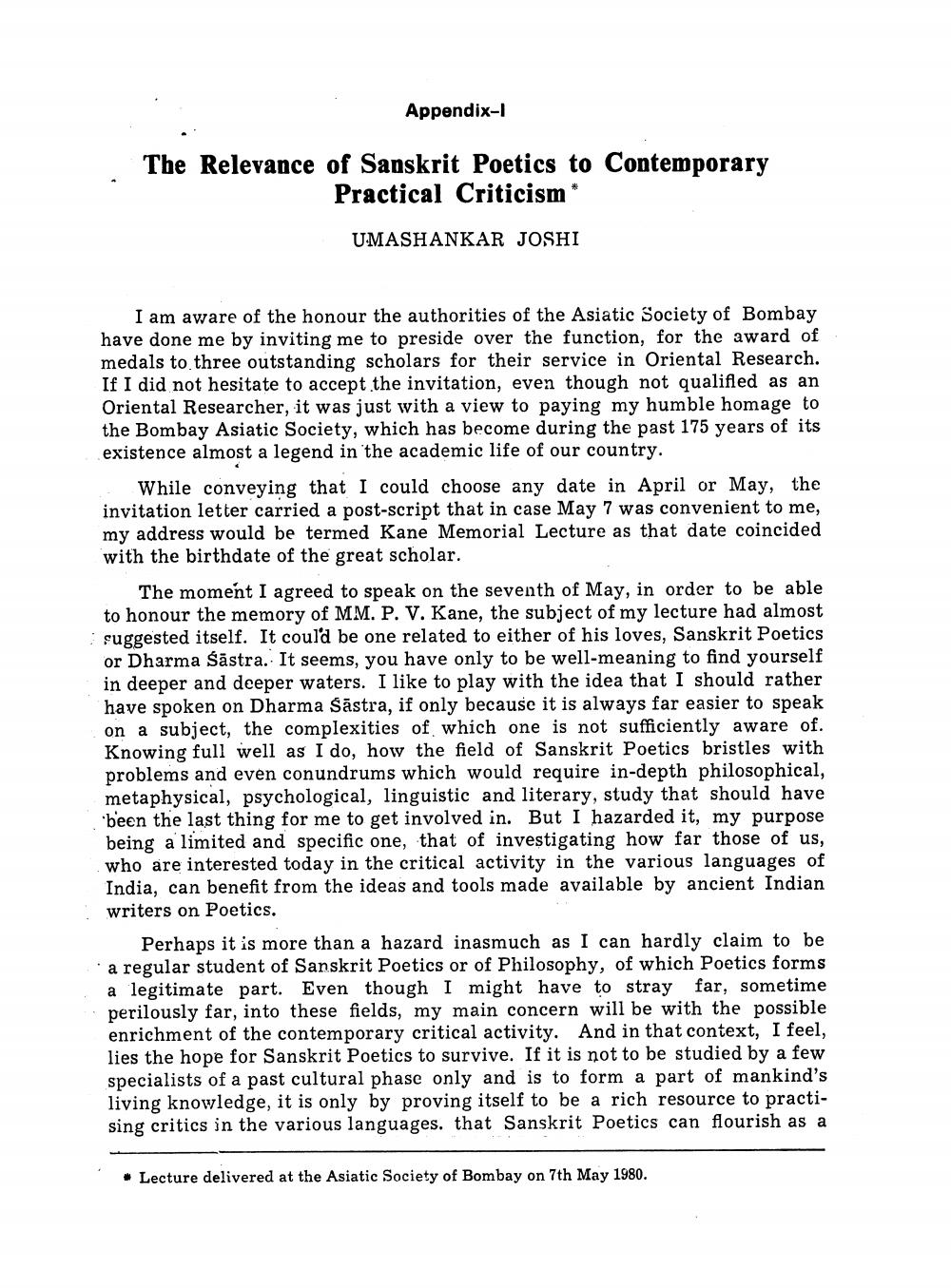________________
Appendix-1
The Relevance of Sanskrit Poetics to Contemporary
Practical Criticism *
UMASHANKAR JOSHI
I am aware of the honour the authorities of the Asiatic Society of Bombay have done me by inviting me to preside over the function, for the award of medals to three outstanding scholars for their service in Oriental Research. If I did not hesitate to accept the invitation, even though not qualified as an Oriental Researcher, it was just with a view to paying my humble homage to the Bombay Asiatic Society, which has become during the past 175 years of its existence almost a legend in the academic life of our country.
While conveying that I could choose any date in April or May, the invitation letter carried a post-script that in case May 7 was convenient to me, my address would be termed Kane Memorial Lecture as that date coincided with the birthdate of the great scholar.
The moment I agreed to speak on the seventh of May, in order to be able to honour the memory of MM. P. V. Kane, the subject of my lecture had almost suggested itself. It could be one related to either of his loves, Sanskrit Poetics or Dharma Šāstra. It seems, you have only to be well-meaning to find yourself in deeper and deeper waters. I like to play with the idea that I should rather have spoken on Dharma Sastra, if only because it is always far easier to speak on a subject, the complexities of which one is not sufficiently aware of. Knowing full well as I do, how the field of Sanskrit Poetics bristles with problems and even conundrums which would require in-depth philosophical, metaphysical, psychological, linguistic and literary, study that should have been the last thing for me to get involved in. But I hazarded it, my purpose being a limited and specific one, that of investigating how far those of us, who are interested today in the critical activity in the various languages of India, can benefit from the ideas and tools made available by ancient Indian writers on Poetics.
Perhaps it is more than a hazard inasmuch as I can hardly claim to be a regular student of Sanskrit Poetics or of Philosophy, of which Poetics forms a legitimate part. Even though I might have to stray far, sometime perilously far, into these fields, my main concern will be with the possible enrichment of the contemporary critical activity. And in that context, I feel, lies the hope for Sanskrit Poetics to survive. If it is not to be studied by a few specialists of a past cultural phase only and is to form a part of mankind's living knowledge, it is only by proving itself to be a rich resource to practising critics in the various languages. that Sanskrit Poetics can flourish as a
Lecture delivered at the Asiatic Society of Bombay on 7th May 1980.




